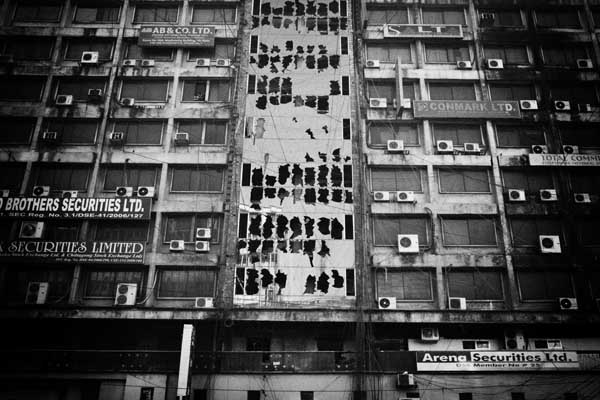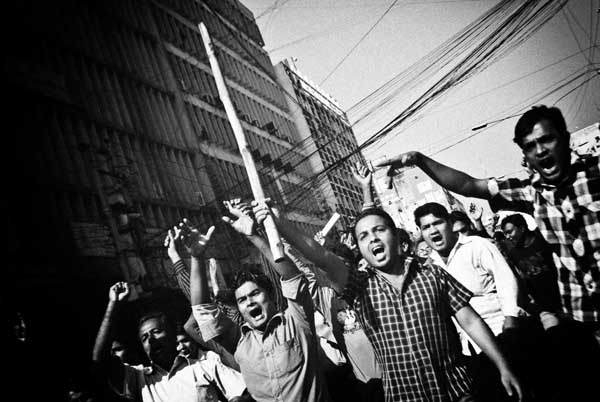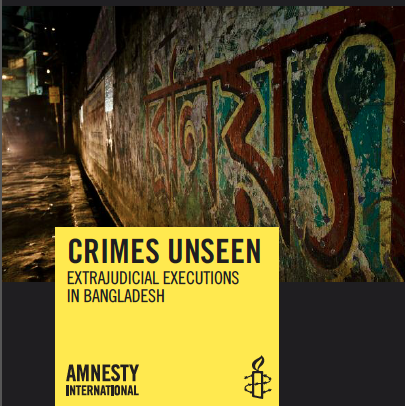Tag: Governance
Braveheart girl lit a flame
Photographs and text by Subrata Biswas
India was stunned when a 23 year old female physiotherapy intern was beaten and brutally gang raped by six men on a moving bus in New Delhi on 16 December, 2012 and thrown out of the vehicle, almost dead. She was first taken to Safdarjang Hospital, received multiple surgeries, and was placed on mechanical ventilation. Though still critical, the victim tried her best to communicate with her doctors by writing notes. On 26 December, 2012 she was moved to Singapore for further treatment, where she died on 29 December while undergoing emergency treatment for brain and gastrointestinal damage from the assault.

Continue reading “Braveheart girl lit a flame”
Livestreaming: "IT SECURITY IN TODAY'S GLOBAL BANKING"
Date :?5th July, 2012?Time :?06:00 PM
Venue:?Ball Room Pan pacific Sonargaon Dhaka
Drik ICT ?will be live?streaming the seminar?”IT SECURITY IN TODAY’S GLOBAL BANKING”
“Bankers’ CTO Forum Bangladesh, where CTOs/CIOs/Heads of IT/Heads of ICT of Government and Commercial Banks are the members, is organising a seminar on “IT SECURITY IN TODAY’S GLOBAL BANKING” jointly with IBM and M/S Thakral Information Systems Pvt. Ltd. at Ball Room, Pan Pacific Sonargaon Dhaka on 05 July, 2012. The Honorable Governor of Bangladesh Bank will be the Chief Guest.
The purpose of this CTO forum is to become trusted partner of policy makers, stake holders and the objectives are to engage in meaningful dialogue and build solutions that are critical to the Banking and IT industry, explore topics of mutual interest and most importantly bring synergy between business and technology leaders.”
Streaming on?5th July, 2012?from:?06:00 PM
Tribunal against Torture
The session, organised on June 26, 2012 at the BRAC Centre Inn, Dhaka by Odhikar in collaboration with European Union includes statements by victims and legal expert?s analysis. Speakers include
? Abdul Matin Khasru, MP and Former Law Minister
? Haider Akbar Khan Rono, Presidium Member, Communist Party of Bangladesh
? Abu Sayed Khan, Managing Editor, The daily Shomokal
? Advocate Abdus Salam, Member, Central Coordination Committee, Gonosonghati Andolon
? Rajekuzzaman Ratan, Member, Central Committee, Socialist Party of Bangladesh
? Mizanur Rahman Khan, Associate Editor, Prothom Alo
? Kalpona Akhter, Executive Editor, Bangladesh Centre for Workers Solidarity

There is a paper presented by Adilur Rahman Khan, Secretary, Odhikar which Nurul Kabir, Editor, New Age presides over. Welcoming address given by Dr. C R Abrar, President, Odhikar
A set of posters of the exhibition on extra judicial killings “Crossfire” by Bangladeshi photojournalist Shahidul Alam of Drik is on display. Sets of the posters have been given to human rights activists to use at grassroots level. The show was recently shown at the Queen’s Museum of Art in New York.
Chance meeting
An old student Zin Myoe Sett had set up a meeting with the big wigs of the Myanmar Photographic Society. Christophe Loviny had briefly dropped in to give me an invitation to thier opening at the France Institute of the show?”Aung San Suu Kyi, The Burmese Way to Democracy”. They say the rains in Yangon start on the 20th May. The clouds had obviously not read the script.
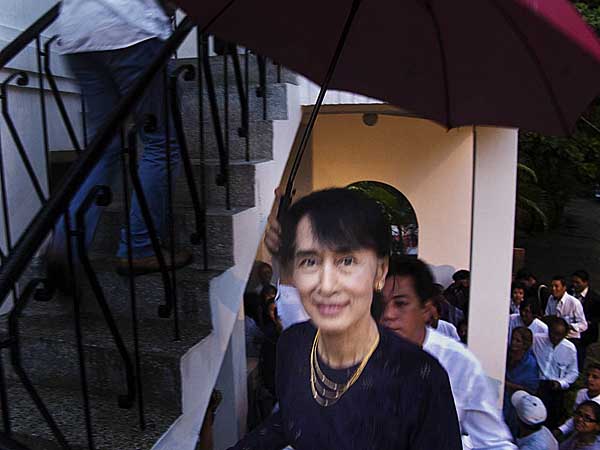
March 12 Rally
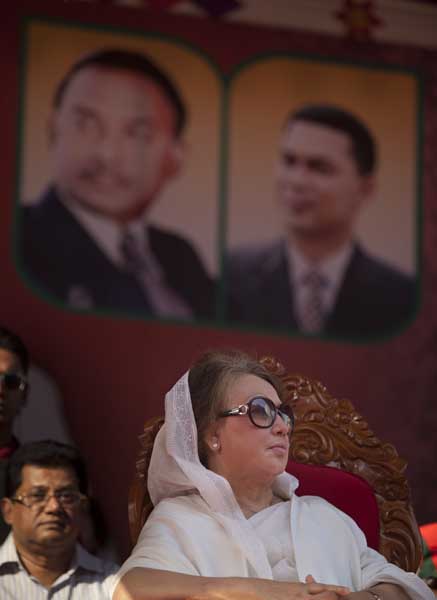
The government was hell bent on preventing the opposition rally. Trains, buses and launches were all stopped. Ordinary passengers were beaten up and prevented from off loading at stations and ferrys. The police were out in full force in the city, checking on people to make sure they were not opposition supporters heading for the rally.
Continue reading “March 12 Rally”
BBC Bangla anniversary debate
Subscribe to ShahidulNews
BBC Bangla anniversary debate on Channel i focuses on freedom of information
Bangladesh?s rapidly changing media scene will be in the focus of the special BBC Bangla programme to be broadcast on Channel i, marking the 70th anniversary of BBC Bangla in the year of the 40th anniversary of Bangladesh?s independence.
The debate panel will include: Adviser to the Prime Minister of Bangladesh, H T Imam; Editor of News Today, Reazuddin Ahmed; and Abu Saeed Khan, Secretary General of AMTOB, the Association of Mobile Telecom Operators of Bangladesh. An invited audience of some 200 people will ask the questions.
Sabir Mustafa will moderate the debate, asking about the challenges facing the traditional and new media: ?These challenges are coming from the social media revolution which has opened up new avenues to exchange information and debate. They are also coming from governments and other regulatory bodies which seek to restrict the freedom of the established media through legislation and to restrict the use of social media.?
The pre-recorded hour-long debate will be followed by an hour-long live studio discussion during which BBC Bangla presenter, Akbar Hossain, and studio guests – photographer and blogger Shahidul Alam of Drik, and leading journalist and former president of National Press Club, Shawkat Mahmud – will discuss comments on the topic, texted by viewers using the short code 16262.
The panel debate will be broadcast by Channel i at 7.50pm Bangladesh time on Thursday 22 December, and at 8pm on Saturday 24 December on BBC 100 FM in Dhaka and on shortwave 12035kHz and 9800kHz. The live discussion will go on air on Channel i at 7.50pm Bangladesh time on Friday 23 December.
Wahid Adnan Wins Award of Excellence in CPOY
Continue reading “Wahid Adnan Wins Award of Excellence in CPOY”
Crimes unseen: Extrajudicial executions in Bangladesh
Subscribe to ShahidulNews
Bangladeshi journalist Masum Fakir was arrested and tortured by the RAB?? Masum Fakir
24 August 2011
Crimes unseen: Extrajudicial executions in Bangladesh also documents how the Rapid Action Battalion (RAB) justify these killings as accidental or as a result of officers acting in self-defence, although in reality many victims are killed following their arrest.
?Hardly a week goes by in Bangladesh without someone being shot by RAB with the authorities saying they were killed or injured in ?crossfire? or a ?gun-fight?. However the authorities choose to describe such incidents, the fact remains that they are suspected unlawful killings,? said Abbas Faiz, Amnesty International?s Bangladesh Researcher.
The RAB has been implicated in the killing of at least 700 people since its inception in 2004. Any investigations that have been carried out into those killed have either been handled by RAB or by a government-appointed judicial body but the details of their methodology or findings have remained secret. They have never resulted in judicial prosecution. RAB has consistently denied responsibility for unlawful killings and the authorities have accepted RAB claims.
?It is appalling that virtually all alleged instances of illegal RAB killings have gone unchallenged or unpunished. There can be no justice if the force is the chief investigator of its own wrong-doings. Such investigations cannot be impartial. There is nothing to stop the RAB from destroying the evidence and engineering the outcome,? said Abbas Faiz.
Former detainees also told Amnesty International how they were routinely tortured in custody, suffering beatings, food and sleep deprivation, and electric shocks.
At least 200 alleged RAB killings have occurred since January 2009 when the current Awami League government came to power, despite the Prime Minister?s pledge to end extrajudicial executions and claims by the authorities that no extrajudicial executions were carried out in the country in this period.
In addition, at least 30 people have been killed in other police operations since early 2010, with the police also portraying them as deaths in ?shoot-outs? or ?gun-fights?.
?By failing to take proper judicial action against RAB, successive Bangladeshi governments have effectively endorsed the force?s claims and conduct and given it carte blanche to act with impunity. All we have seen from the current government are broken promises or worse, outright denial,? said Abbas Faiz.
In many cases the investigations blamed the victims, calling them criminals and portraying their deaths as justified even though available public evidence refuted that.
?The Bangladesh authorities must act now and take concrete steps to protect people from the alleged unlawful killings by their security forces .The government must ensure independent and impartial investigations into all suspected cases of extrajudicial executions and bring those responsible to justice.?
Bangladesh?s police and RAB continue to receive a wide range of military and police equipment from overseas, including from Austria, Belgium, China, Czech Republic, Italy, Poland, Russia, Slovakia, Turkey and USA. In addition, diplomatic cables from the US Embassy in Dhaka, obtained and released by Wikileaks in December 2010 alleged that UK police had been training RAB officers.
Amnesty International calls upon these countries to refrain from supplying arms to Bangladesh that will be used by RAB and other security forces to commit extrajudicial executions and other human rights violations. Any country that knowingly sends arms or other supplies to equip a force which systematically violates human rights may itself bear some responsibility for those violations.
RAB was created in March 2004, to much public acclaim, as the government?s response to a breakdown in law and order, particularly in western and central Bangladesh.
In Rajshahi, Khulna and Dhaka districts, armed criminal groups or powerful mercenary gangs colluded with local politicians to run smuggling rings or extort money from local people. Within months of its creation, RAB?s operations were characterized by a pattern of killings portrayed by the authorities as ?deaths in crossfire?, many of which had the hallmarks of extrajudicial executions.
They usually occurred in deserted locations after a suspect?s arrest. In some cases, there were witnesses to the arrests, but RAB authorities maintained that victims had been killed by ?crossfire?, or in ?shoot-outs? or ?gunfights?.
Bangladesh?s two main political parties ? the Bangladesh Nationalist Party and the Awami League ? have shown no commitment to limiting the powers of RAB.
In the first couple of months of coming to office, the Prime Minister spoke of a ?zero tolerance? policy toward extrajudicial executions. Other government authorities repeated her pledge. These hopes were dashed in late 2009 when the authorities, including the Home Minister, began to claim that there were no extrajudicial executions in the country.
Related links:
An exhibition on extra judicial killings by Shahidul Alam
Guardian report on torture by MI5 in collaboration with RAB
Rahnuma Ahmed’s column on the shooting of Limon Hossain by RAB
Amensty’s Abbas Faiz on RAB impunity
Rahnuma Ahmed’s column on militarisation and the women’s movement
Rahnuma Ahmed’s column on the ‘death squad’
Guardian article on ‘death squad’ being trained by UK Government
Guardian claim of Briton being tortured in Bangladesh
Representing “Crossfire”: Politics, Art and Photography
Drik mourns
Subscribe to ShahidulNews
Tareque Masud and Mishuk Munier amongst five killed in road accident.
Drik mourns the death of two dear friends, the injuries of three others and the numerous deaths of their colleagues and the thousands of uncounted others who regularly die as a result of negligence, corruption and the wanton irresponsibility of those who are in charge of keeping our roads safe.

Tareque Masud, one of the finest film makers this nation has produced. Mishuk Munier, a talented cameraperson and a media professional who had both the dreams and the ability to change the way reporting was done, died a brutal death as they were returning to Dhaka having chosen the location for their next film.
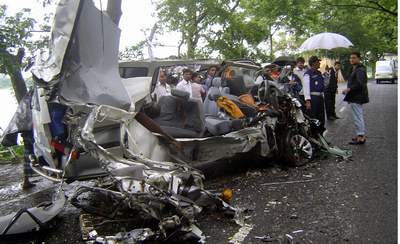
Catherine,?Tareque’s equally talented wife, the producer of the Oscar nominated film Matir Moina, artist Dhali Al Mamoon, who had given the inaugural Golam Kasem Daddy lecture on Drik’s 20th anniversary, and his painter wife Dilara Begum Jolly are in hospital recovering from multiple injuries. Dhali’s condition is critical.
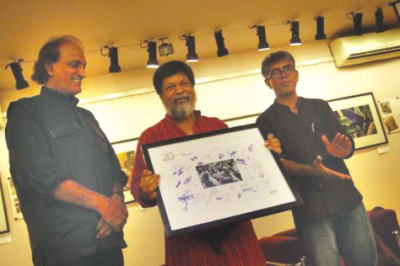
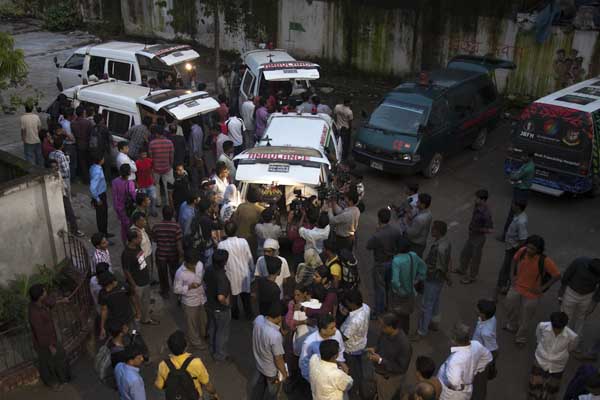

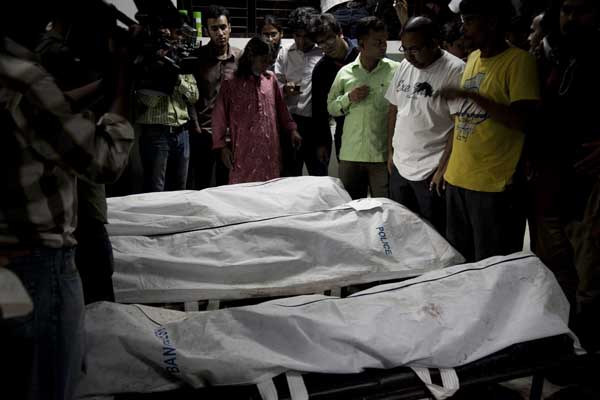
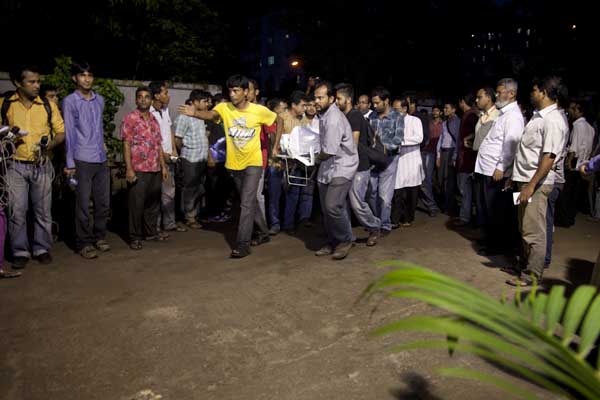
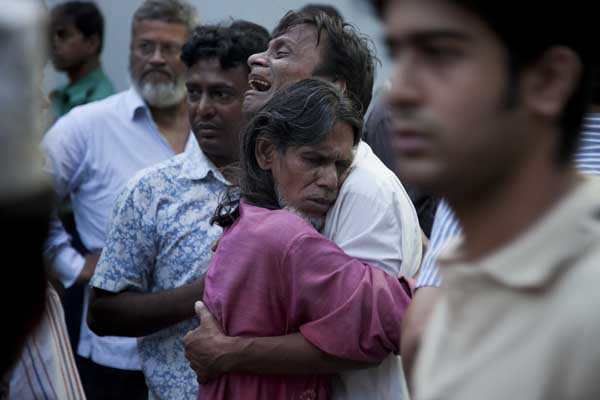
Obituary on Guardian UK



